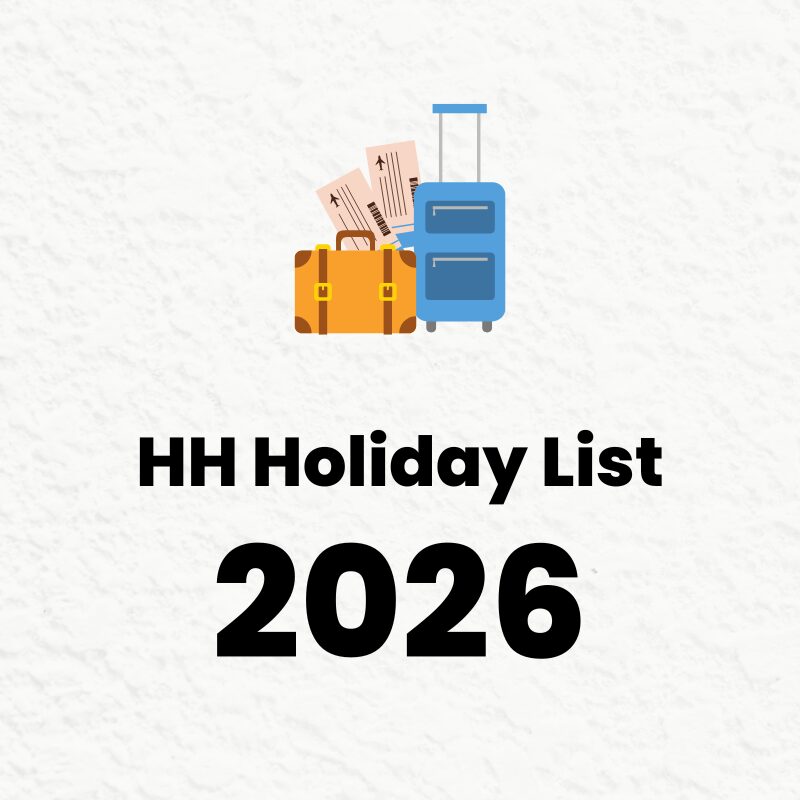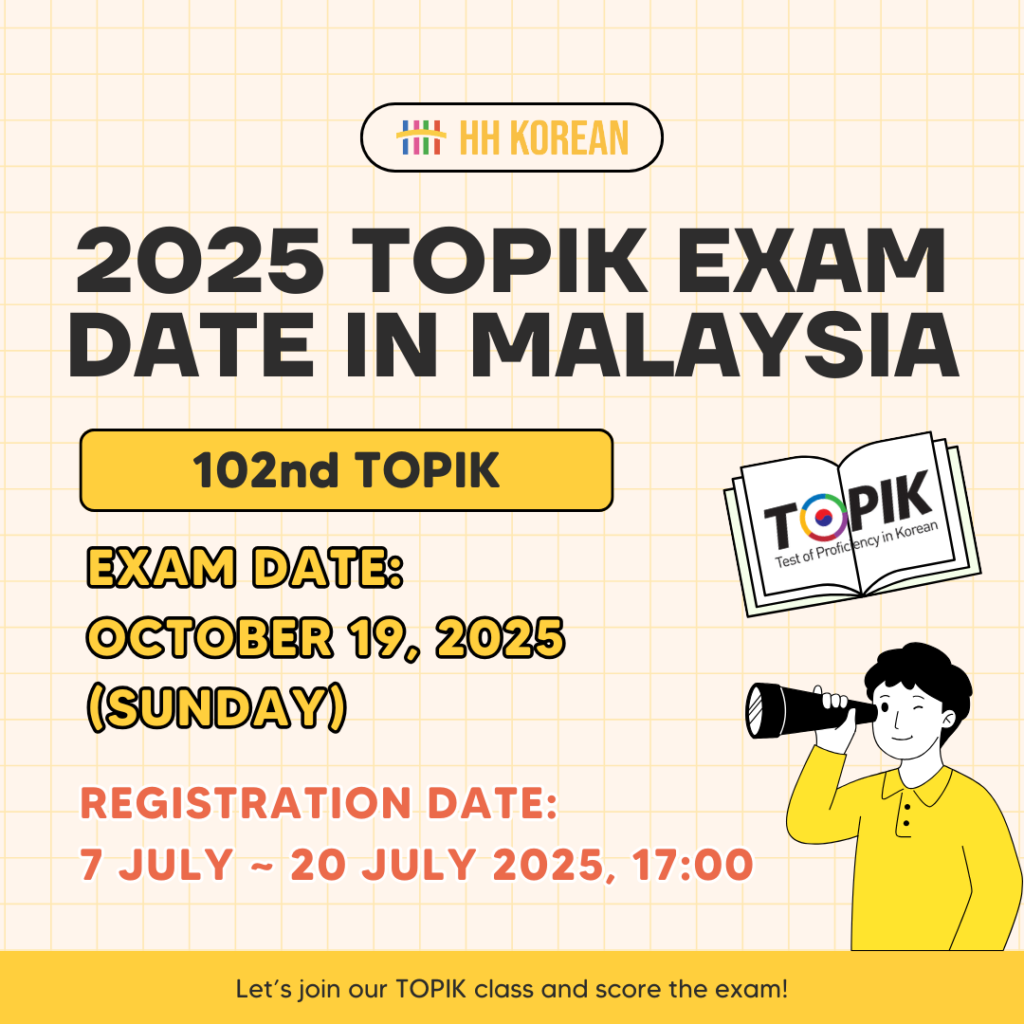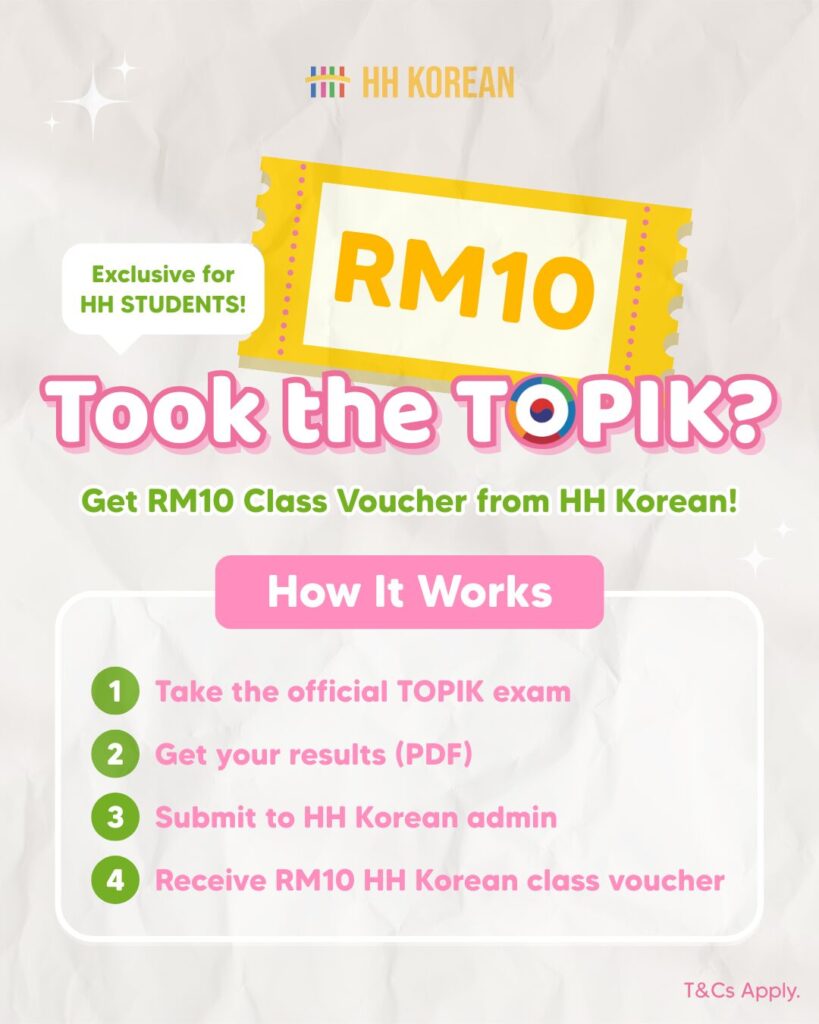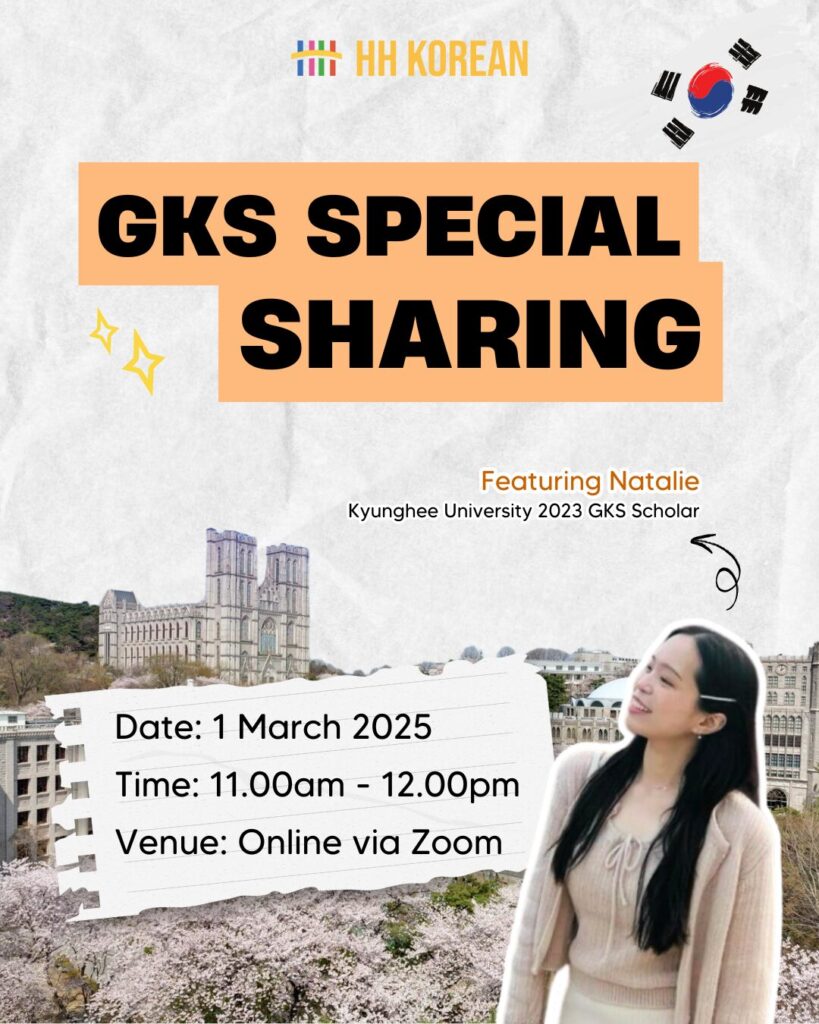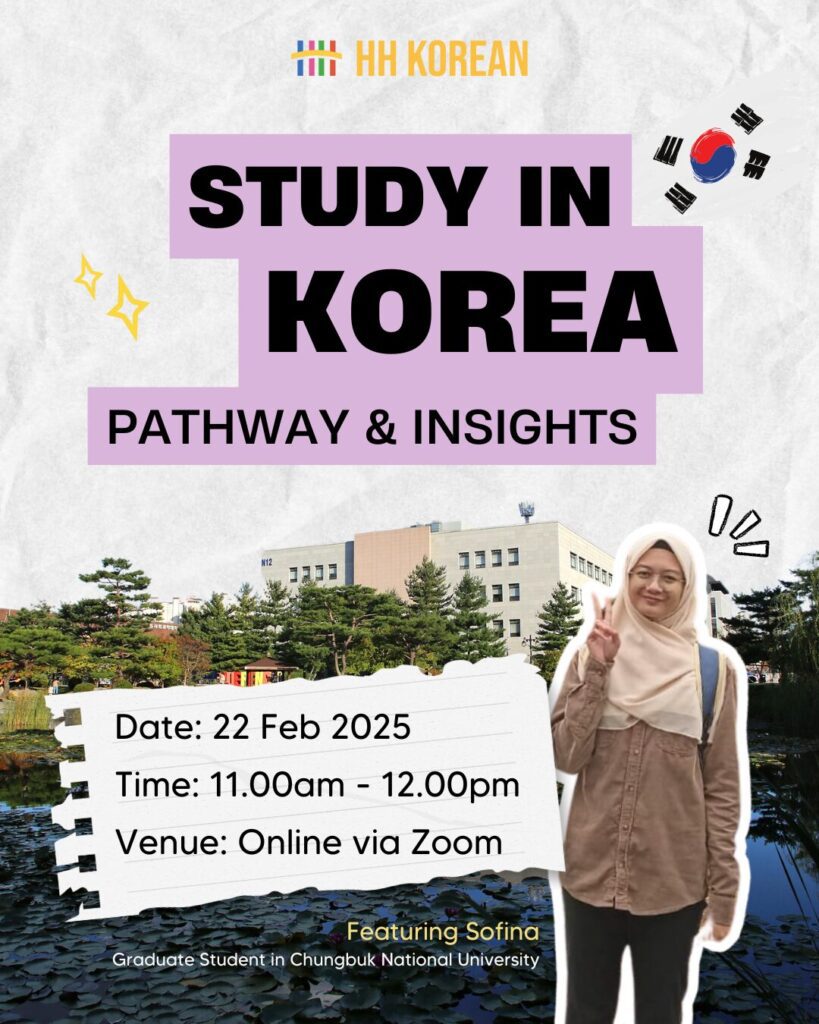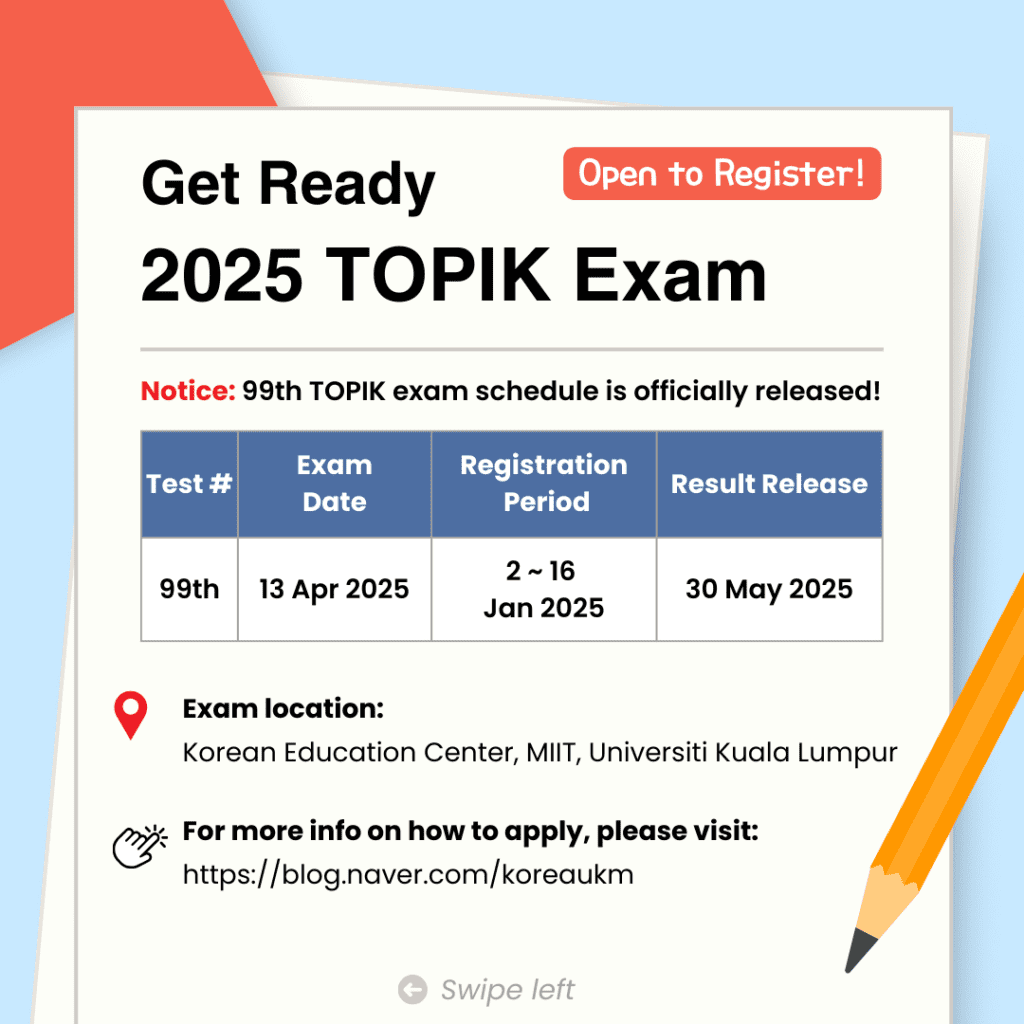🧧✨ 𝗝𝗼𝗶𝗻 & 𝗚𝗲𝘁 𝗔𝗻𝗴𝗽𝗮𝗼 𝗥𝗲𝗯𝗮𝘁𝗲! ✨🧧 Signing up for our 𝗠𝗮𝗿𝗰𝗵 𝗜𝗻𝘁𝗮𝗸𝗲 just got even better! Enjoy an 18% 𝗔𝗻𝗴𝗽𝗮𝗼 𝗿𝗲𝗯𝗮𝘁𝗲 when you register with 𝗙𝗨𝗟𝗟 𝗽𝗮𝘆𝗺𝗲𝗻𝘁 🎉 💰 𝗣𝗿𝗼𝗺𝗼 𝗗𝗲𝘁𝗮𝗶𝗹𝘀 18% Rebate on ALL courses except for Private Class – FULL payment only! 📅 𝗣𝗿𝗼𝗺𝗼 𝗣𝗲𝗿𝗶𝗼𝗱 11 February – 4 March
The HH Holiday List provides an overview of scheduled class breaks observed by HH Korean throughout the year. You can always visit this page to check on the holidays we have throughout the year. We hope this holiday listings can help you better in scheduling your holidays, classes and exams. Any updates or changes will
The 102nd TOPIK (Test of Proficiency in Korean) exam in Malaysia will be held on October 19, 2025 (Sunday). Registration for the exam will be open starting July 2025. Don’t miss this chance to get your Korean language skills officially certified. TOPIK Schedule & Details: 📌 Registration Period: July 7–20, 2025 📅 Exam Date: 19 October
Take the TOPIK, get rewarded! At HH Korean, we believe your hard work deserves a little something extra! That’s why we’re launching a special long-term reward just for our students 💛 📢 Took the TOPIK? Send us your official results and get a RM10 class voucher — every time you take the test!
GKS Special Sharing! 🇰🇷 Curious about the Global Korea Scholarship (GKS)? 🤔 Join us for an exclusive online sharing session with Natalie Loh, a 2023 GKS Scholar currently studying at Kyunghee University! 🎓✨ ✨ What to Expect: ✅ Life as a GKS Scholar in Korea 🇰🇷✅ Insights into the GKS Scholarship
Study in Korea: Your Pathway to Success! 🇰🇷 📢 Dreaming of studying in Korea but unsure where to begin?Join our “Study in Korea: Pathway & Insights” workshop featuring Sofina, a graduate student from Chungbuk National University! ✨ What you’ll learn: ✅ Why study in Korea?✅ Pathways & preparation tips✅ Exclusive insights
HH Korean Language Exchange Program Join our <2025 HH Korean Language Exchange> for a fun, interactive session filled with language practice, cultural exchange, and new connections! ✨ Session Structure: Each session will be conducted in small groups for maximum interaction and learning! ✅ 1 Korean speaker to 2-3 participants✅ Complimentary
99th Malaysia TOPIK Exam Schedule The 99th TOPIK exam is now open for registration – Don’t miss this chance to get your Korean language skills officially certified. TOPIK Schedule & Details: 📌 Registration Period: 2–16 January 2025 (until 17:00) 📅 Exam Date: 13 April 2025📅 Result Date: 30 May 2025📍Venue: Korean Education Center,



